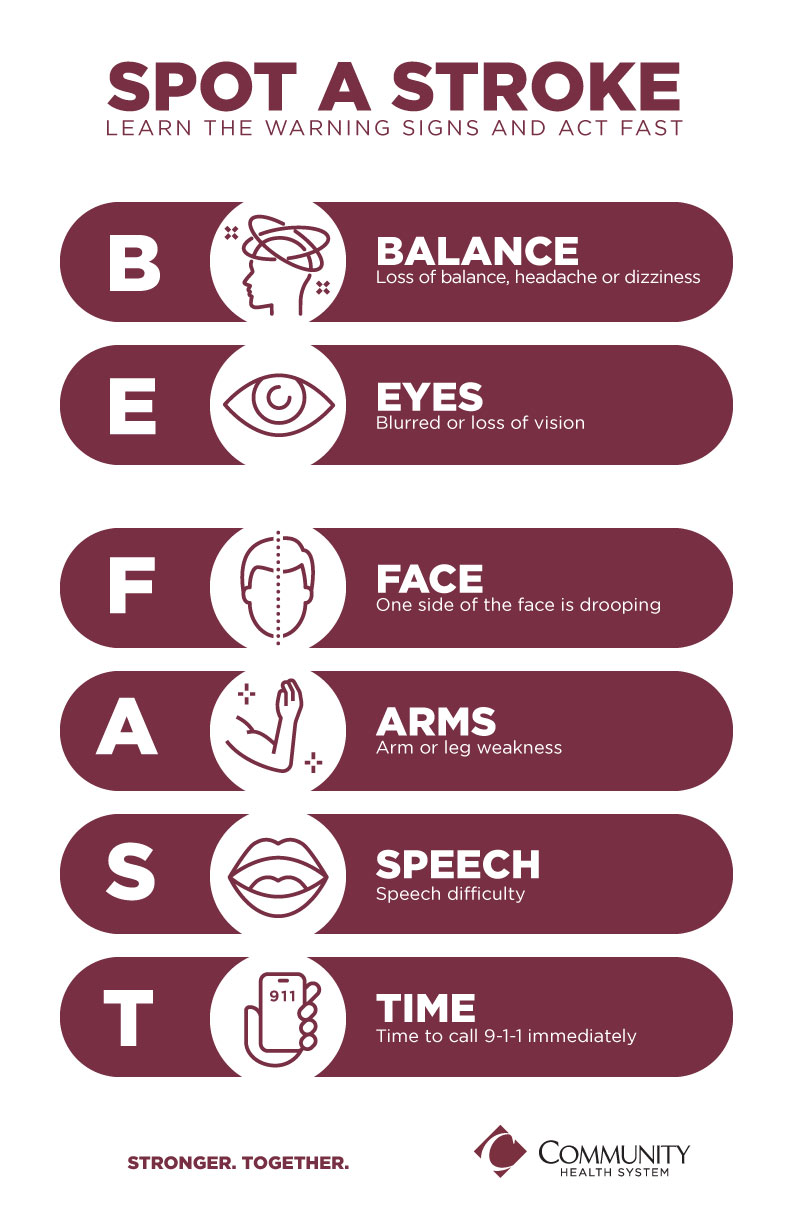
Neurosciences
Neurosciences
About Our Stroke Program
A stroke occurs when a clot or blockage disrupts blood flow to the brain, depriving it of the oxygen and other nutrients it needs to work properly.
When a stroke happens, minutes or even seconds can mean the difference between life and death. If you suspect you or someone you know is having a stroke, call 9-1-1 immediately.
24/7 Help Available
We have a dedicated team of highly skilled medical professionals who are specially trained to diagnose and treat those who are having a stroke, including:
- Neurointerventional neurologists, neurosurgeons and neuroradiologists
- Stroke neurologists
- Neurosurgeons
- Neurointensivists
- Nurses
- Therapists
- Laboratory and pharmacy staff
- Social workers
Our evaluation and treatment procedures follow extensive guidelines that address both emergency and ongoing care. In the case of ischemic strokes (80% of stroke cases), we administer thrombolytic medication to break up the clot and restore blood flow to the brain.
What You Can Expect
Your ambulance team communicating with the hospital before you arrive in our emergency department
A head CT scan or brain MRI scan performed and interpreted within 45 minutes of admittance
- Stroke rehabilitation therapy offered immediately after hospitalization to improve long-term outcomes and lower the risk of complications
- Stroke recovery education materials in both English and Español
- Stroke support group
Quality Measures
We track and review various quality indicators to ensure we're delivering effective care by looking at the outcomes of our patients. View the current quality metrics for our facilities.
Tests
To help diagnose a stroke, your doctor may order a number of tests and assessments, which can include:
Blood tests.
X-rays.
Ultrasound scanning.
Magnetic resonance imaging (MRI). An MRI is a safe and painless test that uses radio waves and magnets to create a detailed view of the inside of the body.
Computerized tomography (CT) scan. A CT scan uses X-rays to create detailed images of the inside of the body.
Additional tests. These are conducted to find out whether there are heart-related problems, such as an irregular heartbeat.
Treatment
Before deciding on a course of treatment for you, we'll take into account your specific diagnosis and other factors to come up with an option that best fits your individual needs. We use a multi-disciplinary approach, which means bringing in experts from various fields and divisions to come up with a plan of treatment.
Generally, treatment may include:
Medication. This can include medications to dissolve clots, reduce pressure on the brain or control blood pressure.
Surgery. There are a number of options for surgical care, depending on factors ranging from the type of stroke (transient ischemic, ischemic or hemorrhagic) to severity.
Award-Winning
Stroke Programs
Advanced Comprehensive Stroke Center
Community Regional Medical Center is certified as an Advanced Comprehensive Stroke Center and has earned the Gold Seal of Approval™ from The Joint Commission.
For more information:
Primary Stroke Center
Clovis Community Medical Center is certified as a Primary Stroke Center and has earned the Gold Seal of Approval™ from The Joint Commission.
For more information:
American Heart Association’s – Stroke Gold Plus Award
Community Regional Medical Center has been honored with the American Heart Association’s Get With The Guidelines® – Stroke Gold Plus quality achievement award. This recognition highlights the hospital’s commitment to delivering stroke care based on the latest research and evidence-based guidelines.
For more information:
American Heart Association’s – Stroke Silver Plus Award
Clovis Community Medical Center has been honored with the American Heart Association’s Get With The Guidelines® – Stroke Silver Plus quality achievement award. This recognition highlights the hospital’s commitment to delivering stroke care based on the latest research and evidence-based guidelines.
For more information:
We're proud to care for all types of strokes. Our programs have been recognized by The Joint Commission in collaboration with the American Heart Association/American Stroke Association:
Advanced Comprehensive Stroke Center
Community Regional Medical Center
Primary Stroke Center
Clovis Community Medical Center
We use cookies and other tools to optimize and enhance your experience on our website. View our Privacy Policy.


